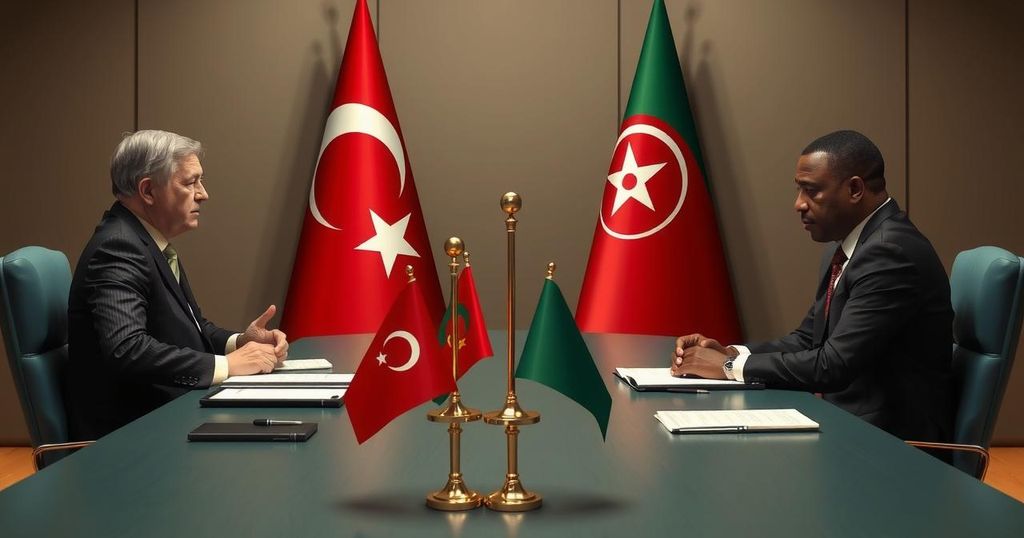Significant Diplomatic Advancements in Somalia-Ethiopia Relations

A recent diplomatic agreement between Somalia and Ethiopia, mediated by Turkey, concluded after extensive negotiations involving territorial recognition and port access. The Ankara Declaration affirms Somalia’s territorial integrity while providing Ethiopia with commercial access to Somali ports, addressing key demands of both nations amidst regional complexities and pressures.
The recent meeting between Somali President Hassan Sheikh Mohamud and Ethiopian Prime Minister Abiy Ahmed, held in Ankara, culminated in a significant diplomatic agreement, primarily facilitated by Turkish mediation. This deal comes after extensive negotiations, as Somalia sought to have Ethiopia cancel a memorandum of understanding (MoU) with Somaliland, which grants Ethiopia port access through Somaliland’s coastline. While Somalia perceives this MoU as a potential recognition of Somaliland’s sovereignty, Ethiopia, asserting its landlocked status, claims the right to sea access under international law.
During the marathon negotiations, lasting nearly seven hours, Turkish President Recep Tayyip Erdogan played an active role, thereby demonstrating Turkey’s commitment to maintaining stability in the region. Ultimately, both nations reached the Ankara Declaration, which formalizes Ethiopia’s recognition of Somalia’s territorial unity while granting Ethiopia commercial access to Somali ports, thus addressing both parties’ core demands. This agreement is indicative of Somalia’s strategic positioning and ability to leverage previous agreements for diplomatic advantage.
In the broader context, the agreement also stems from diplomatic pressures faced by Abiy Ahmed, particularly from the United States, which is focused on maintaining regional security and addressing the threats posed by militant groups like al-Shabab. Furthermore, internal political dynamics, including Somaliland’s recent presidential elections, may influence ongoing relations and considerations for future deals regarding Somaliland’s status. Analysts regard the outcome as a balanced agreement that benefits both Ethiopia and Somalia, aiding Ethiopia’s access to vital coastal trade routes while affirming Somalia’s territorial claims.
The geopolitical landscape between Somalia and Ethiopia has been characterized by territorial disputes, particularly surrounding the status of Somaliland. Ethiopia, being a landlocked nation, relies heavily on access to ports for trade, making exerting influence in the region critical for its economic interests. The Coalescence of diplomatic interventions, especially from Turkey, has been pivotal in navigating these tensions. Turkey has established itself as an influential player in Somali affairs, having invested considerable resources and military presence since 2011. The Oslo discussions reflect a broader trend of regional powers actively engaging in African geopolitics, with implications for local stability and economic partnerships.
In conclusion, the Ankara Declaration marks a pivotal moment in Somali-Ethiopian relations, balancing Ethiopia’s need for access to the sea with Somalia’s demand for territorial integrity. The diplomatic efforts led by Turkey underscore its growing influence in the Horn of Africa, mediating complex regional disputes. By reaching this agreement, both nations stand to benefit greatly, with implications for trade and stability in a historically volatile region. Future negotiations between technical delegations are poised to further solidify this newfound cooperation.
Original Source: www.middleeasteye.net








